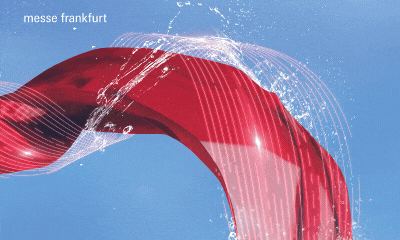 |
Tax Report Projects U.S. Travel Costs to Be Higher After Recession (États-Unis)
|
Catégorie : Amérique du Nord et Antilles - États-Unis - Économie du secteur
- Chiffres et études
Ceci est un communiqué de presse sélectionné par notre comité éditorial et publié gratuitement le jeudi 27 août 2009
The NBTA Foundation, the education and research foundation of the National Business Travel Association (NBTA), and Concur, the world's leading provider of on-demand employee spend management services, today released the updated findings of a comprehensive study of car rental, hotel and meal taxes in the top 50 U.S. travel destination cities. Compared to last year's report, the findings show that even as new travel taxes are introduced and discriminatory travel tax rates continue to rise across the country, there has been a slight decrease in actual dollars travelers pay in taxes for lodging, rental cars and meals. The decline is attributable to decreases in the average rates for those travel services across the country. As the price of a car rental, hotel, or meal drops, the percentage-based taxes on those services drop.
For example, the report shows a year-over-year decline of $.53 in the average combined taxes a traveler pays on lodging, rental cars and meals in central city locations (as distinct from airport locations).
Fay Beauchine, NBTA Foundation Chair, said, “While the report shows that the travel taxes paid have slightly declined, we know that the fall is due to the weak economy and not tax cuts. In fact, tax rates increased and more were implemented across the United States to make up for government revenue shortfalls during the recession. So when the economy recovers, travelers will take a double hit of rising prices and exploding taxes due to tax rate increases enacted during this downturn.”
The study provides several different views of travel taxes to help readers make informed choices. The top 50 markets are ranked by overall travel tax burden, including general sales tax and discriminatory travel taxes, and by discriminatory travel tax burden, excluding general sales taxes to count only taxes that target car rentals, hotel stays and meals. Separate data are offered for central city and airport locations, as the tax regimes are often distinct.
The research shows the U.S. cities where travelers incur the lowest total tax burden in central city locations, factoring in general sales taxes and discriminatory travel taxes for lodging, car rentals, and meals, are:
1. Portland, OR $21.49/day
2. Detroit, MI $22.37/day
3. Honolulu, HI $22.55/day
4. Fort Myers, FL $22.91/day
5. Fort Lauderdale, FL $23.69/day
The cities that impose the highest total taxes on travelers are:
1. Chicago, IL $40.99/day
2. Seattle, WA $37.95/day
3. Dallas, TX $37.26/day
4. San Antonio, TX $37.20/day
5. Houston, TX $36.83/day
Discriminatory travel taxes are those imposed on specifically on travel services above and beyond general sales taxes. The U.S. cities with the lowest discriminatory travel tax rates for lodging, car rentals, and meals in central city locations are:
1. Burbank, CA $0.76/day
2. Oakland, CA $1.24/day
3. Orange County, CA $1.72/day
4. San Jose, CA $2.14/day
5. Ontario, CA $2.92/day
The cities that impose the highest discriminatory travel taxes on travelers for lodging, car rentals, and meals are:
1. Portland, OR $21.49/day
2. Minneapolis, MN $17.49/day
3. Boston, MA $17.12/day
4. San Antonio, TX $16.48/day
5. Dallas, TX $16.22/day
“Today’s economic environment places significant burdens on the travel manager to control costs,” said Steve Singh, chairman and CEO of Concur and NBTA Foundation board member. “Research such as that conducted by the NBTA Foundation is vital for making informed decisions. This knowledge becomes even more powerful when combined with the data captured by an end-to-end approach to travel and expense management. The result enhances visibility into corporate travel spend and increases policy compliance – which ultimately helps drive down costs.”
Beauchine added, “In today’s tough economic times, corporate travel and meetings managers are scrutinizing locations more than ever before, increasingly considering the tax burden as a factor in their decision-making. The NBTA Foundation is pleased to provide this unique and important research to help companies maximize the value of their travel budgets.”
|
|







